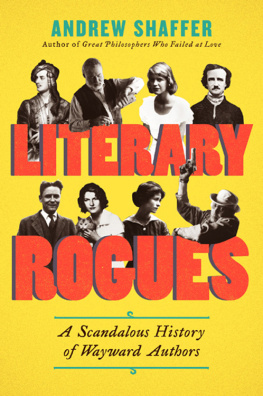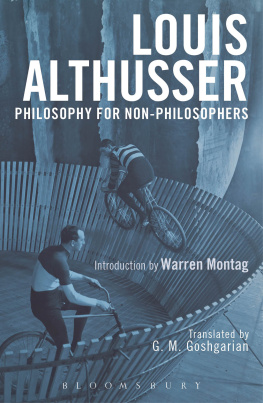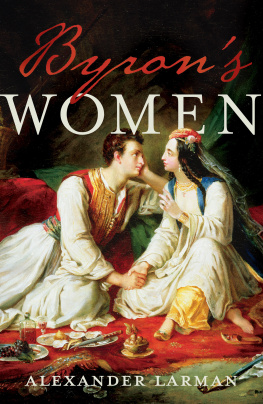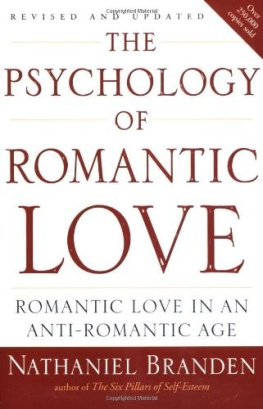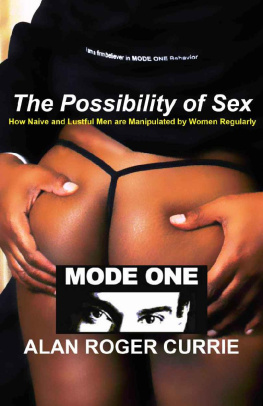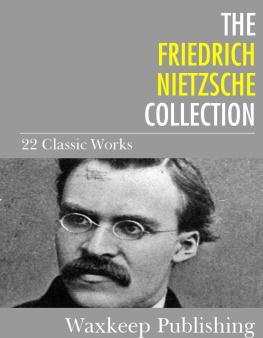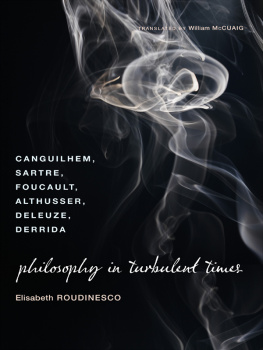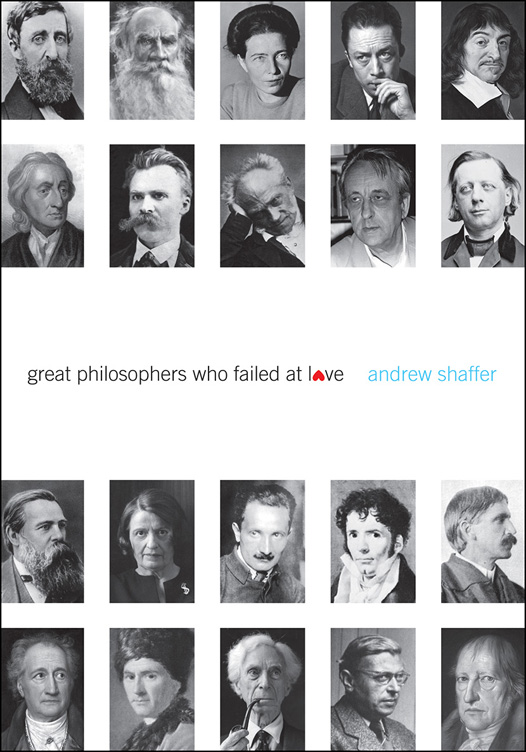Contents
Its always nice to know that no matter how badly youve screwed up your love life, someone else has done far, far worse.
Neal Pollack
W e all have questions about love; we all want to know the secrets to a successful relationship. Is she the one? Is it okay to date my boss? How do I know if my husband is cheating? It seems intuitive that we should look to wise men and women for the answers.
Philosophers have contemplated the most vexing questions, from ethics to politics to the very nature of being. If anyone can teach us about a concept as abstract as love, philosophersthe original lovers of wisdomshould be at the top of the list. But a lover of wisdom and a wise lover are, as it turns out, two very different things.
While most of us have struck out at love before, the tales of many philosophers romantic hardships and indiscretions take the wedding cake. You might have forgotten an anniversary, but at least you didnt strangle your wife (Louis Althusser), adopt your mistress as your daughter (Jean-Paul Sartre), or get exiled to another country for having an affair (Seneca the Younger).
The great Western philosophersthe men and women whose intellectual acrobatics are praised by professors in Philosophy 101 courses everywherehave consistently sabotaged their own relationships with their neurotic tendencies. In or out of love, philosophers are overly critical, condescending, and holier-than-thou. Their theories are impenetrable, their positions contradictory, their probing questions a nuisance. Such temperamental behavior has made philosophers unsuitable candidates for marriage. It is not surprising that so many philosophers simply opted out of the love game altogether.
While far too many philosophers died miserable, bitter, and alone, a few did make it through their failures to have happy marriages. Like Albert Camus, whose life was cut short by a tragic car accident before his wife could discover the mistresses that he had hidden around the globe. Or Henry Ward Beecher, the infamous nineteenth century adulterer, whose wife was too busy raising their ten children to even give a thought to divorcing him. Or Bertrand Russell, who found that, at least when it comes to matrimony, the fourth time is the charm.
The truth is that this book contains just a sampling of the thousands of great minds who have failed at love. In every era of history, big brains and broken hearts have gone hand in hand, and the bigger they come, the harder they fail. Perhaps Bob Dylan was the wisest of all when he admitted: You cant be in love and wise at the same time.
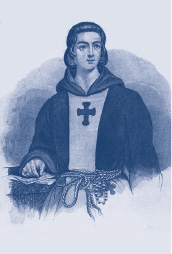
Let no lover hereafter follow my example, for a woman rejected is an outrageous creature.
B y his own estimation, French scholar Peter Abelard confounded all the learned of the age with his philosophical musings. At the height of his fame, after defeating his teachers in logical arguments and founding his own school, Abelard accepted the chair of the Notre Dame cathedral school in Paris in 1115. His lectures on Greek philosophy and Christian theology drew thousands of students, but seventeen-year-old Hlose dArgenteuil stood out from the crowd. I saw her, I loved her, I resolved to make her love me, Abelard reflected in his autobiography.
Hlose lived with her uncle Fulbert, a canon of the cathedralnot a man to be trifled with. This presented only a minor challenge for Abelard, who devised a plan to steal Hlose out from under the canons watchful eye. I was ambitious in my choice [of lady], and wished to find some obstacles, that I might surmount them with the greater glory and pleasure, Abelard wrote. He befriended Fulbert through a mutual acquaintance, and in a stroke of luck, Fulbert hired him to educate Hlose in philosophy. Can you believe it, he allowed me the privilege of his table, and an apartment in his house? [And] by this means I found opportunities of being in private with her, Abelard wrote, clearly pleased with himself.
Hlose fell in love with her mentor, who was over twice her age; their private tutoring sessions quickly degenerated into lessons of the flesh. Soon their love couldnt be contained to daylight hours, and they secretly met at night to express mutual affections. As one of Abelards contemporaries put it bluntly, the learned professor taught her not to argue but to fornicate. Rumors of Abelard and Hloses affair spread throughout Paris, eventually circling back to Fulberts ears. The enraged uncle tossed the professor out of his home and onto the street.
Abelard refused to abandon his young lover. After renting an apartment near Fulberts house, he met with Hloses maid Agaton. He asked her to be an intermediary between himself and Hlose. Unfortunately for Abelard, the maid had her own feelings for him:
I am in love with you, Abelard; I know you adore Hlose, and I do not blame you; I desire only to enjoy the second place in your affections. Do not perplex yourself with scruples; a prudent man should love several at the same time, then if one should fail he is not left unprovided.
Sounds like a sensible proposal, no? But not to Abelard, whose heart belonged to but one woman. He shot down Agatons advances, and the spurned maid vengefully exposed Abelards continued pursuit of Hlose to Fulbert. A woman rejected is an outrageous creature, Abelard wrote of the maids tattling.
Agatons report threw Hloses uncle into a fit of rage, rendering futile any attempt by Abelard to get back into his good graces. It seemed that the lovers had never been further apart. To complicate matters, Hlose was pregnant.
Abelard, at the end of his rope, did the only sensible thing: He scaled the walls of Fulberts house, abducted Hlose in a daring rescue, and whisked her away in the dead of night. He hid her away in his hometown of Brittany, where she gave birth to their love child.
Abelard, fearing a public scandal, began to have second thoughtsperhaps he had acted too hastily. Determined to ease tensions with her uncle, he proposed to marry Hlose. Astonishingly, Fulbert accepted the peace offering, and Abelard and Hlose were wed in a secret ceremony.
Hlose was against their marriage, believing it to be no more than a business transaction that would drain their relationship of its natural passion. Will it not be more agreeable to me to see myself your mistress than your wife? she said, adding that the cries of children and the cares of a family [are] utterly inconsistent with the tranquility which study require. This was partially trueAbelard had been neglecting his philosophical studies while playing house. He reluctantly consented to his wifes demands and shipped her off to a convent for safekeeping. Their son ended up in the care of Hloses sister.
What occurred next was an event that historians have delicately described as a certain well enough known event when [Abelard] was not well treated. When Fulbert found out that his niece had been sent away to the convent, he had Abelard castrated. With chilling detachment, Abelard wrote:
An assassin came into my bedchamber by night, with a razor in his hand, and found me in a deep sleep. I suffered the most shameful punishment that the revenge of an enemy could invent; in short, without losing my life, I lost my manhood.
In one of the most remarkable examples of positive thinking ever recorded, Abelard envisioned the castration as a liberation from his past debauchery. He found solace in a monastery, where he was finally able to write to his hearts content. I [found] in philosophy and religion a remedy for my disgrace; I searched out an asylum to secure me from love.

